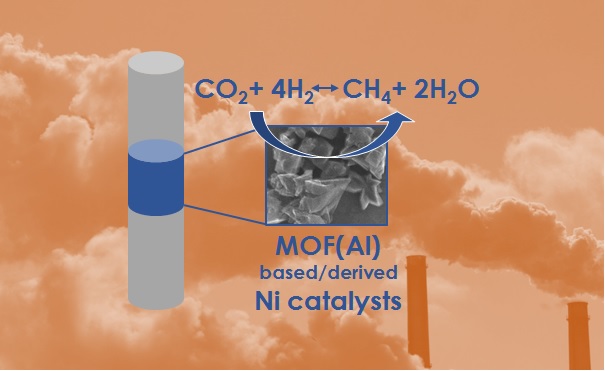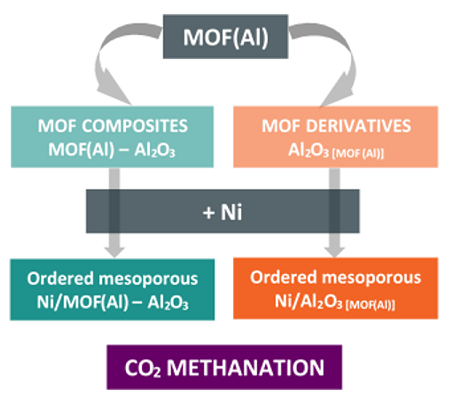
CO2 methanation by MOF based / derived ordered mesoporous catalysts

Project financed by UEFISCDI
Project Code: TE – PN-III-P1-1.1-TE-2019-1447
Program: PNCDI III, Programul 1 – Dezvoltarea sistemului național de CD / Resurse Umane
Project Type: Proiecte de cercetare pentru stimularea tinerelor echipe independente (TE)
Contract Nr.: TE 161 / 2020
Duration: 01.11.2020 – 31.10.2022
Project leader:
Dr. Maria MIHEȚ
e-mail: maria.mihet[at]itim-cj[dot]ro
Phone: (+40)264-584037, ext. 122,129
fax: (+40)264-420042
INCDTIM – National Institute for Research and Development of Isotopic and Molecular Technologies, Department of Mass Spectrometry, Chromatography and Applied Physics
67-103 Donat Str., PO Box 700, RO-400293, Cluj-Napoca, Romania
Abstract
Methanation of CO2 is receiving a revived scientific and technological interest: chemical storage of renewable energy as CH4 (Power-to-Gas concept), combined with the use of CO2 (CO2 capture and utilization) bring both an energetic and an environmental advantage. Highly efficient CO2 methanation catalysts, with good CH4 selectivity should have catalytic functionalities ensuring both CO2 and H2 activation. In this context, metal-organic frameworks (MOFs), – a class of extended coordination networks obtained by assembling metal centers to organic linkers – could ensure enhanced dispersion of active metals inside their ordered porous structure, while their gas sorption and storage capacity could be beneficial in respect to CO2 activation.
The main objective of the project is the development of ordered mesoporous MOF-based and MOF-derived Ni catalysts with enhanced catalytic and operational performance in the methanation of CO2. Two strategies are pursued: (a) nucleation of MOF crystals on preshaped solid macrostructures (MOF-based catalysts), and (b) sacrificial use by thermolysis of MOFs to form MOF-derived structures, which inherit the characteristics and properties of the original MOF (high surface area, ordered porous structure, uniform distribution of constituent elements). Thus, after Ni nanoparticle incorporation, ordered mesoporous catalysts could be obtained, with enhanced mass transfer (better accessibility of active sites) and heat integration (better conductive heat transfer) in the catalytic bed. MOF-based and MOF-derived ordered mesoporous Ni catalysts will be structurally, morphologically and functionally characterized, while catalytic tests will pursue the evaluation of catalytic performance under differential and integral conditions, at different temperatures, CO2:H2 ratios, or flow conditions. Stability tests will allow the evaluation of the catalysts life time, while deactivation possibilities might be investigated and regeneration methods proposed.
Objectives
The main objective of the present project proposal is the development of ordered mesoporous MOF-based and MOF-derived Ni catalysts with enhanced catalytic and operational performance in the CO2 methanation process.
From the catalytic performance point of view, high CO2 conversion with corresponding excellent methane selectivity are aimed, with good stability and minimal deactivation.
The specific objectives derived from this main objective are:
O1 – Synthesis and characterization of MOF-based ordered mesoporous Ni catalysts.
O2 – Synthesis and characterization of MOF-derived ordered mesoporous Ni catalysts.
O3 – Catalytic activity performance of MOF-based and MOF-derived ordered mesoporous Ni catalysts – comparative study in the CO2 methanation reaction (experimental set-up, catalytic tests under differential and integral reaction conditions, stability tests, deactivation tests).

Team
Dr. Maria MIHEȚ
Project leader
Dr. Oana GRAD
Member
Dr. Mihaela D. LAZĂR
Member
Dr. Alexandru TURZA
Member
Dr. Maria SUCIU
Member





